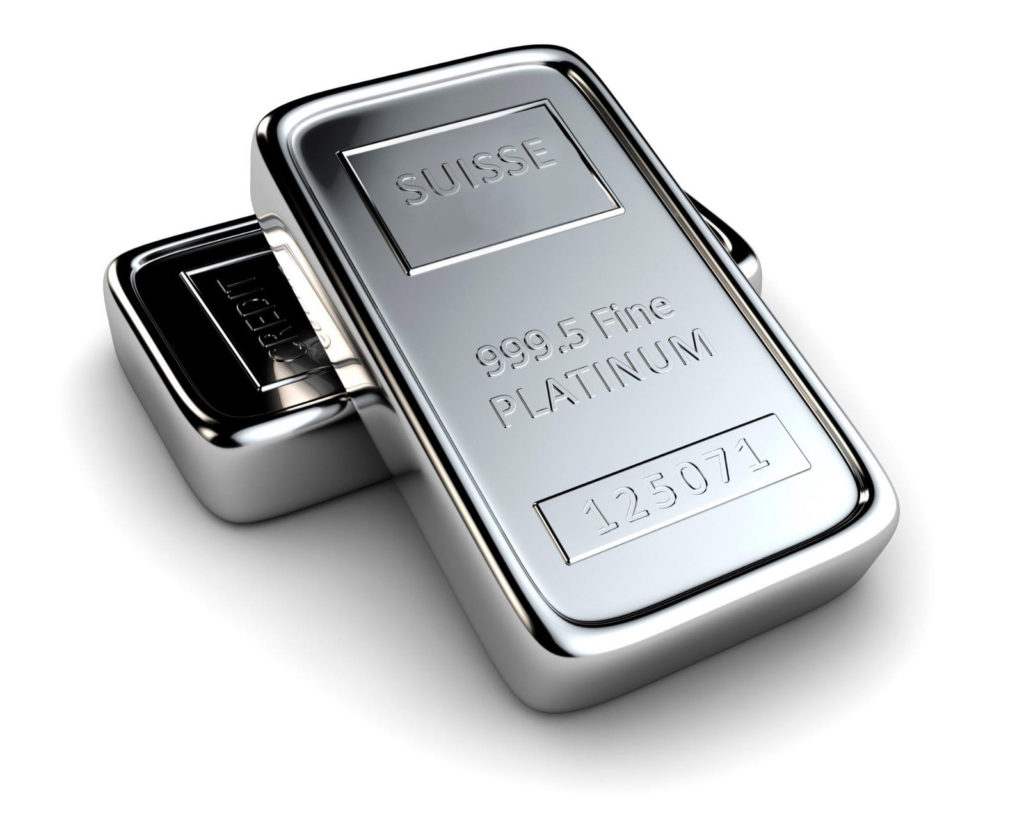
For generations, gold and silver have been heralded as “safe bets”. However, other precious metals such as platinum, are often left out. So should you invest in platinum? Is it a good investment?
In recent weeks, we’ve also looked at whether you should invest in gold and whether you should invest in silver. Much of this has the same (sort of) premise, but not necessarily…
Reasons to Invest in Platinum
There are a number of reasons why you should invest in platinum, these include:
Diversification
If you’re a seasoned, or even a novice investor, you’re probably familiar with the concept of diversification. The belief that in order to protect your portfolio, you need to invest in multiple things.
For some, this means buying into several stocks in a number of different industries, or buying real estate in different areas. For others, it may be investing in bonds or doing all three!
Instead of buying bonds, you could choose instead to invest in an expensive precious metal, such as platinum. This may actually prove to be more beneficial than what you might have invested in otherwise.
You see, the prices of stocks and real estate tend to increase and decrease at roughly the same time. In an economic boom, the prices of stocks and real estate tend to increase, with the opposite being true in a recession.
However, the same isn’t true for precious metals such as platinum. On the contrary, they’re actually reversed! When stocks and real estate are doing well, platinum is not. When stocks and real estate aren’t doing well, platinum is.
This is because when stocks and real estate begin to crumble, people believe that it’s the end of the world. As such, they buy assets with a perceived tangible value, usually precious metals like gold, silver and platinum!
It’s Better For The Large Investor
Sadly, this one could be both a reason to invest in silver and a reason not to invest in silver. However, if you’re looking to sink a large amount of money (more than $10,000) platinum is generally easier.
Generally speaking, if you are buying any precious metal in large volumes, you will get a discounted rate from the vendor/refiner.
As a general rule, the more expensive the metal is, the bigger these discounts are going to be, not only numerically, but also percentage-wise too.
Platinum, is more often than not, more expensive than gold (unless it’s a recession, then gold tends to be the more expensive metal). As such, the large investor can often reap the benefits more.
Also, if the vendor knows that you as an investor will be a repeat customer, or perhaps you already have, they often give you a bigger discount than they would otherwise. This exaggerates the aforementioned point.
It’s Tangible
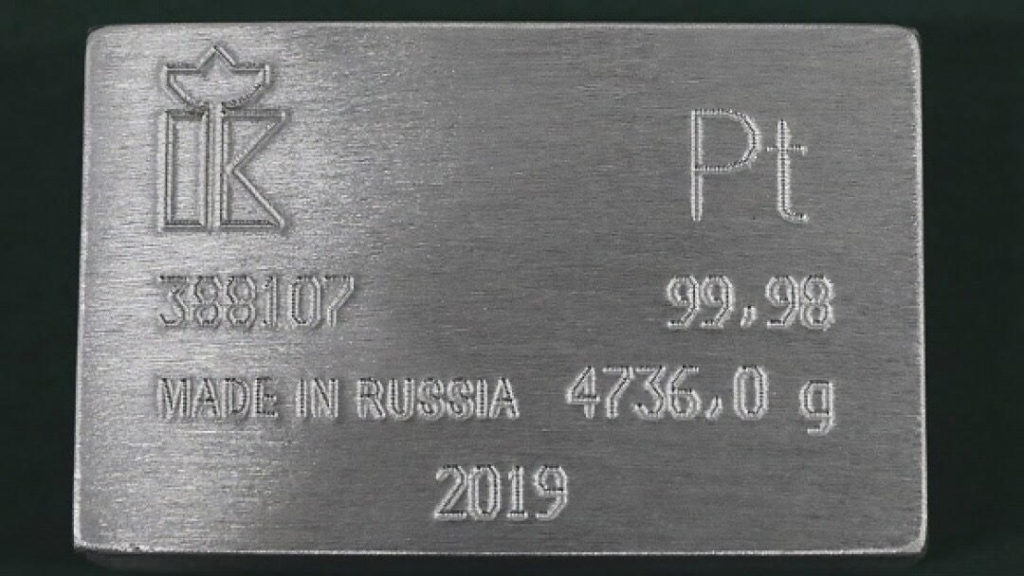
Of all the different types of assets that you own, be it stocks, bonds, real estate or whatever, chances are that most of them are intangible. You can’t see them and you can’t touch them.
Even real estate, something that has always been a tangible asset is increasingly becoming intangible thanks to things like REITs.
Historically speaking, when you bought a stock or a bond, you received a physical stock or bond certificate. Today, thanks mostly to the internet, stock/bond certificates are becoming things of the past!
Mostly, this has helped to prevent malicious destruction or theft of stock or bond certificates. However, placing them online has opened them up to new threats, namely hacking and/or cyber theft.
But platinum? It’s still as tangible as it was 20 years ago… You can still touch it, you can hold it, and if you so desired, you could throw it at a wall!
As a tangible asset, platinum is impossible to hack or be the victim of cyber crime. Assuming that you store it in a secure place, such as a home safe or a secure vault, it is next to impossible for you to lose your platinum!
Unlike many other precious metals, due to the makeup of platinum as an element, and the complexities involved with mining it, there are very few fake platinum bars. This chance is almost 0% if you buy it from an established dealer!
Many Uses
For investors, there are three main ways that we can invest in platinum, with two being preferred more. These are as bars, coins and jewelry, with the first two being the most favored by investors.
In terms of bars, mints and refiners all over the world will mint pure platinum bars as low as one gram, or as high as 1 kg (2.2 lb). However, most mints/refiners only start at one ounce, and work their way up.
For coins, most mints or refiners will only produce one ounce coins, that are generally more expensive due to their often collectible nature. Many countries will also issue limited-edition platinum coins on special occasions too!
Over the last few years, platinum jewelry has also become quite popular, especially in the form of wedding rings. For the most part, investors shy away from these types of investments, but not always.
Generally speaking, investors only buy platinum jewelry if it is from a particularly high-profile jewelry manufacturer (which is almost a guarantee that it will increase over time!) or if it has lots of diamonds or other precious stones on it!
Beyond just its investment uses, platinum is also used in industry too. Chances are that your car has platinum in it (in the catalytic converter) which is actually the main use of platinum, unlike other precious metals like gold!
Less Cumbersome
Platinum is far denser than both silver and gold, as such, platinum bars and coins are far smaller than their silver and gold counterparts. Naturally, this comes with its own benefits.
Unless you are buying millions of dollars worth of platinum, chances are that you can store it at home for a lot less than the same value in either silver or gold.
For instance, if you bought $10,000 worth of platinum, it would buy you roughly ten ounces (as of the time of writing). The same amount in silver, would buy you over 370 ounces (as of the time of writing).
Naturally, it is going to be easier to store ten ounces of platinum than 370 ounces of silver.
Most relatively cheap home safes, can quite easily store ten, perhaps even 20 ounces of silver without it filling up the safe too much. However, assuming 370 ounces could fit in the safe, it would likely fill it, or take up the majority of the useable room!
However, if you were buying $10,000 worth of platinum, most investors would consider having it stored in a safety deposit box, or a vault or some kind. The same principle would also apply here.
If you were depositing the 370 ounces of silver, you’d need a much larger safety deposit box, which is itself more expensive to rent. However, with ten ounces of platinum, you could buy the smallest box available!
Reasons Not to Invest in Platinum
However, there are also a number of reasons why you should not invest in platinum, these include:
It’s Really Expensive
Generally speaking, platinum is the most expensive of the three most common investment metals. As a general rule, silver is the cheapest, followed by gold, followed by platinum.
99.9% of the time, platinum is more expensive than gold by around 250% (two and a half times the price!) This makes it almost impossible to purchase in large quantities for your average investor.
To many, you’re probably thinking “Oh well, they can just buy ten grams instead of fifty!” or something along those lines. And yes, they can, and often do.
However, this creates another problem: premiums. Whenever you buy physical bullion, be it silver, gold or platinum, you will always pay a premium to have the physical bullion (mostly due to the costs involved with manufacturing it).
In lower weight bars, usually those under one ounce, these premiums are far higher. For a one ounce bar, the premiums are usually around 10% (it varies from refiner to refiner and store to store).
With lower weight bars, this premium may be as low as 15% (if you’re lucky!) to as much as 50%! This is essentially an extra 50% you’re paying for fancy packaging and a certificate.
No Revenue
As if the latter was bad enough, platinum, as with all precious metals are non-revenue producing assets. This means that, no matter how long you hold them, they will never pay you. Not once.
When you look at other assets, like stocks, bonds and real estate, they all produce some form of revenue, even that revenue is rather poor. Compared to platinum, however, this poor revenue will probably look rather appealing.
The only way that platinum will “pay” you is if it increases in value. Assuming that you hold it for a prolonged period of time (and don’t pay over the odds for it in the first place!) it will likely increase in value!
However, you will only get this money when you sell it. And quite often, this is less than the then-market value of platinum (so that the vendor can make a profit when they choose to resell it).
Low Long Term Returns
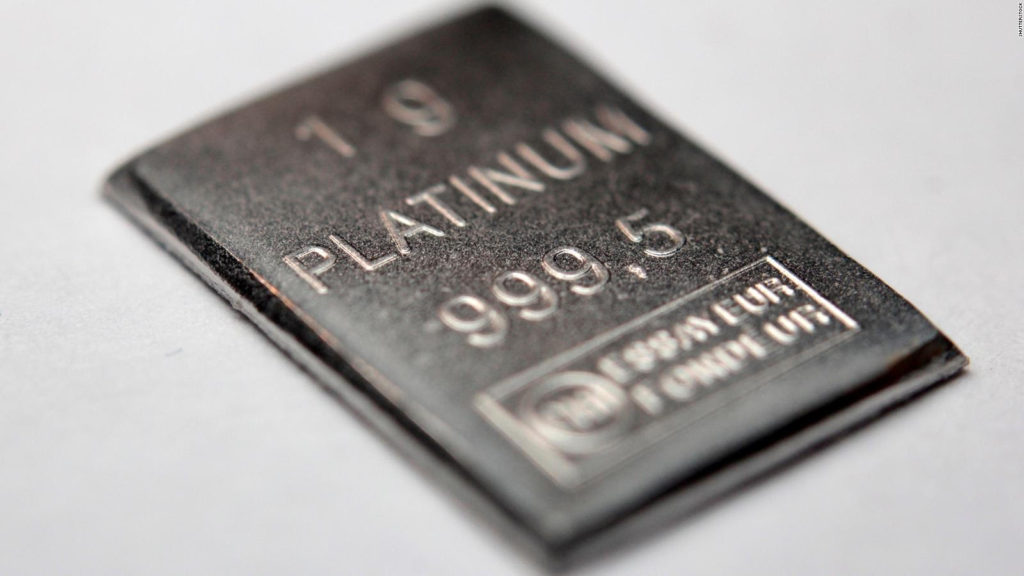
Many investors also choose not to invest in platinum due to its lower than average long term returns.
As of the time of writing, inflation over the past 20 years has been roughly 50.1%. Platinum prices during the same period, have only risen by 69%, netting only a 19.1% gross return.
Had you invested in the Dow Jones or S&P 500 stock indexes, rather than platinum, you’d have netted roughly 387% returns or roughly 337% in gross returns.
If you’d bought into real estate, with the average returns averaging on 10% per year, you’d have netted 628% net returns or roughly 578% in gross returns during the same time.
For the vast majority of experienced investors, whilst there may be many reasons why you should invest in silver, they all go out the window when they are essentially loosing money.
The vast majority of investors view investing as a numbers game, and 19 is a lot smaller than 337, which itself is much smaller than 578!
Taxes
Earlier, I mentioned that platinum has a number of different uses. I mentioned in passing that it has several non-investment related uses, with the largest use of it being in catalytic converters.
Due in part to the role catalytic converters play in reducing the harmful emissions released by cars, many governments have decided that they want to keep their nation’s stockpile of platinum, mostly at a constant.
The way they have chosen to do this, is by implementing taxes. For the most part, this depends entirely on where you live, with the taxes depending entirely on local and/or nationwide laws.
For example, in Europe, there is a 20% VAT tax on all sales of platinum within the EU borders (plus the United Kingdom). So even if you buy it from Europe and ship it, you’ll have to pay at least a 20% markup.
In much of North America, there are no nationwide taxes on the sale of platinum in particular. However, most US states have some kind of sales tax, which would be applicable here (as with any other purchase!)
A few states and/or cities with high levels of platinum sales also have a small platinum tax of 5%, however, this is limited to only a few cities in the Northern US.
There are also import taxes in most countries on the import of platinum which vary from country to country, and occasionally state to state.
The Richest Investors Don’t Own it
When you look at the investment portfolios of the world’s richest investors, even those institutional investors such as Ray Dalio, they almost never own platinum. Or really any precious metal.
For the most part, this is because of the aforementioned points, particularly, the facts that platinum doesn’t produce any form of revenue and its lower than average returns!
On top of this, many of them, especially Warren Buffett, have given interviews repeatedly about precious metals. Whenever the interviewer asks them if they’ll ever invest in them, they often simply reply: “No”.
Warren Buffett in particular gives a rather interesting response. He says that precious metals like platinum are fiat currencies just like the Dollar, Pound or Euro are.
To many, this is rather confusing. After all, the Dollar, Pound, Euro etc. all became fiat currencies when they abandoned things like the gold standard, ending in the 1970’s.
However, Buffett explains that precious metals like platinum are valuable, only because we believe they do have value…
And when the best investor ever, says that something isn’t a particularly goo investment, he probably knows what he’s talking about!
Should You Invest in Platinum?
Sadly, there is really no right or wrong answer to this: the answer is very personal to you and your financial situation. This is a question that only you can answer, sadly, no one else can do this for you.
Personally, I recently divested myself of my platinum holdings (roughly one kilo of platinum in total) in order to increase my holdings in certain stocks I own. However, I had held my platinum for roughly three years.
For me, I own a relatively large portfolio, mostly comprised of stocks and real estate (roughly a 50-45 split). That extra 5% is made up of precious metals, such as silver and gold.
My general take on whether or not you should invest in platinum is rather simple and is what I’ve personally done:
If you are just starting out, I would recommend that you don’t invest in platinum. Instead, invest in stocks or real estate to get compound interest working for you, and increase the value of your investments portfolio.
Once you’ve got an investments portfolio worth over, say $1 million, you should invest in platinum. I recommend that you invest roughly 5% of it in a mixture of precious metals, including gold, silver and platinum.
This way you’ll always be protected regardless of the economic climate!
However, once again, this is only what I have personally done. There is no guarantee that this will work for you personally.
Do you invest in platinum? Why or why not? Tell me in the comments!

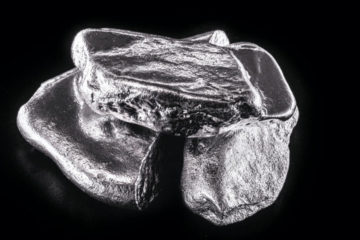
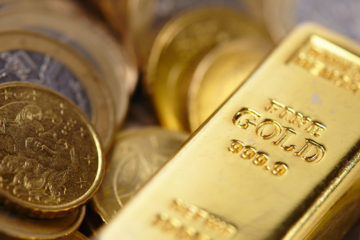
1 Comment
octavian8 · June 17, 2021 at 1:07 am
Advice for most people is to keep $5000 in the bank. Add some metal for a silver, gold, or platinum version. You know, for depressions or Road Runner days. The very rich never think of such things. Nice article on pros and cons, keep up the good work!
Comments are closed.